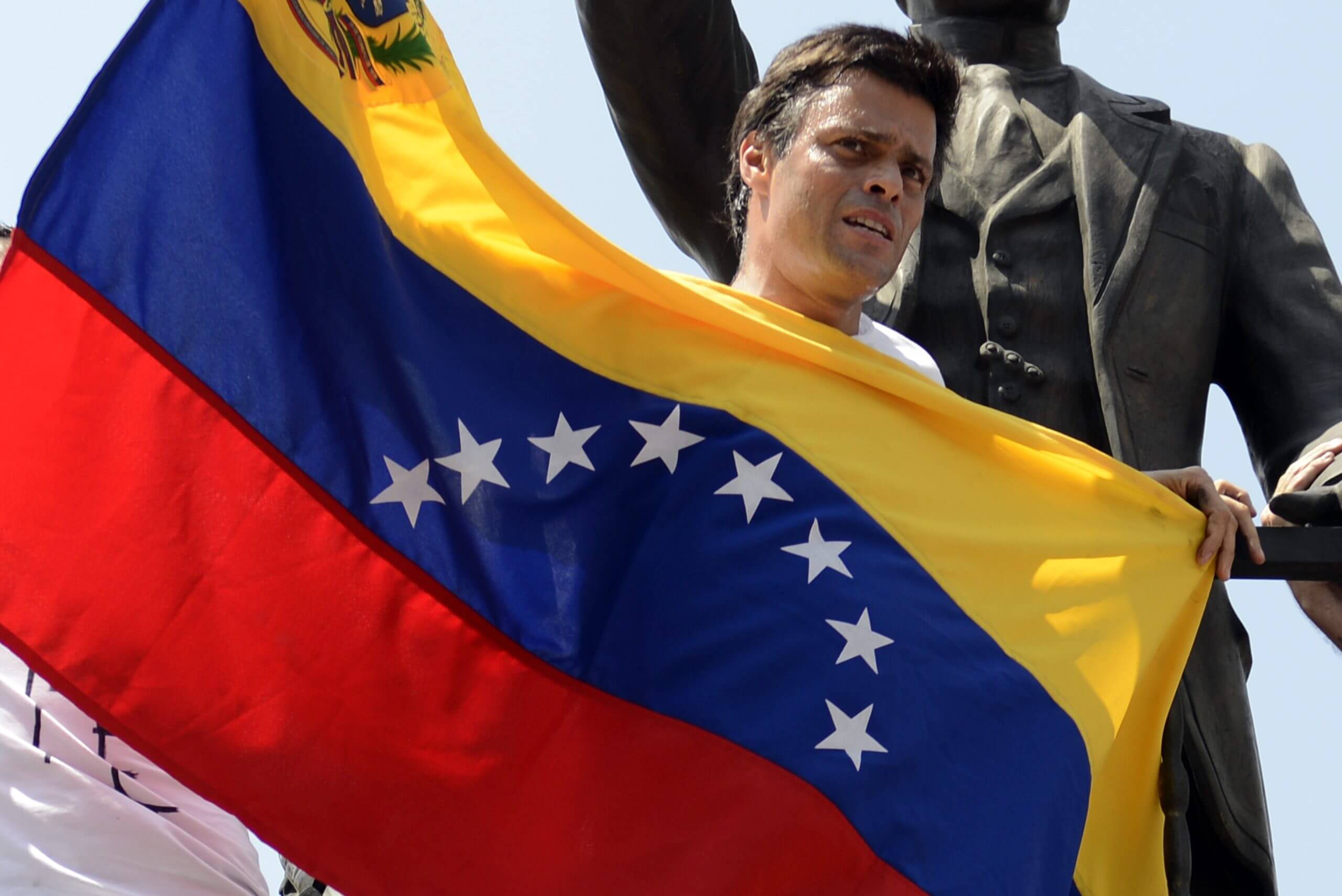The announcement was published in the official Twitter account of Venezuela’s notoriously subservient Supreme Court, who cited “irregularities in the execution of his sentence” and “information about the health situation of the political leader” as justification for his conditional release. The news came after Lopez has spent three and half years of incarceration in a military prison and almost half that time in solitary confinement. HRF reiterates its February 2014 designation of López as a prisoner of conscience and calls on Venezuela’s authoritarian regime to vacate his sentence and unconditionally release him.
“The dictatorship is crumbling fast in Venezuela, and this surprising decision may be a catalyst to recuperate democracy in Venezuela,” said Garry Kasparov, chairman of HRF. “Terms like ‘kangaroo court’ or ‘sham trial’ do not begin to describe what happened to López since his arrest in 2014. After the lead prosecutor confessed in October 2015 to having falsely charged López, the conviction should have been vacated immediately. This is what need to happens now, and needs to happen immediately,” added Kasparov.
Leopoldo López was arbitrarily arrested in Caracas in February 2014 after leading a peaceful demonstration to the Ministry of Interior, Justice, and Peace. In September 2015, López was sentenced to 14 years in prison on “criminal association” and “incitement to commit a crime” for leading this protest. López’s trial and appellate proceedings were riddled with due process violations. The trial and appeal process consisted of over 70 hearings that took place behind closed doors, in violation of the right to a public trial. Out of over 700 hours of trial proceedings, López’s legal team had just three hours to argue in his defense. In an ostensible display of bias, trial judge Barreiros allowed 108 witnesses and 30 exhibits presented by the prosecution, while allowing only two of the 60 witnesses proposed by the defense, and declaring the bulk of the evidence exonerating López inadmissible.
Throughout the criminal proceedings, high-ranking government officials made almost daily public statements asserting López’s culpability, in violation of the right to presumption of innocence. In fact, official television channels and the two main leaders of the regime, Nicolás Maduro y Diosdado Cabello, refer to López as “The Monster of Ramo Verde.” Ramo Verde is the name of the military prison in Los Teques, Venezuela, where over the past three and a half years López was subjected to cruel, inhuman, and degrading treatment, in direct violation of international standards on the protection of the human dignity of persons deprived of liberty.
In addition to the appalling conditions of captivity and excessive isolation, López spent at least a third of his time in prison in solitary confinement, having been denied the right to receive visitors, including, at times, his wife and children, as well as his lawyers. López, his wife, and his mother have been subjected to violent, invasive searches, and the confidentiality of their communications has been violated.
“López is part of a group of prominent prodemocracy activists under dictatorial regimes worldwide who over the last ten years have been sentenced to dozens of years in prison in clear violation of basic freedom of speech and freedom of association rights under international law,” said Javier El-Hage, chief legal officer of HRF. “In 2009, the Chinese dictatorship jailed Nobel Peace Prize laureate Liu Xiaobo on charges of ‘inciting subversion of state power’ after he wrote a democracy manifesto, and transferred him to house arrest only last month after he became terminally ill with liver cancer. In 2012, Kazakhstan similarly convicted the leader of the democratic opposition, Vladimir Kozlov, of ‘inciting social hatred’ but he was released on parole in August last year after spending almost 4 years in prison,” said El-Hage.
López’s unjust arrest and incarceration have been condemned by multiple institutions worldwide, including Amnesty International, the UN High Commissioner for Human Rights, and the European Parliament. HRF was the first organization to declare López a political prisoner and a prisoner of conscience, after determining that the opposition leader had been persecuted, arrested, and imprisoned exclusively for having exercised his right to freedom of expression.
The Human Rights Foundation (HRF) is a nonpartisan nonprofit organization that promotes and protects human rights globally, with a focus on closed societies.
